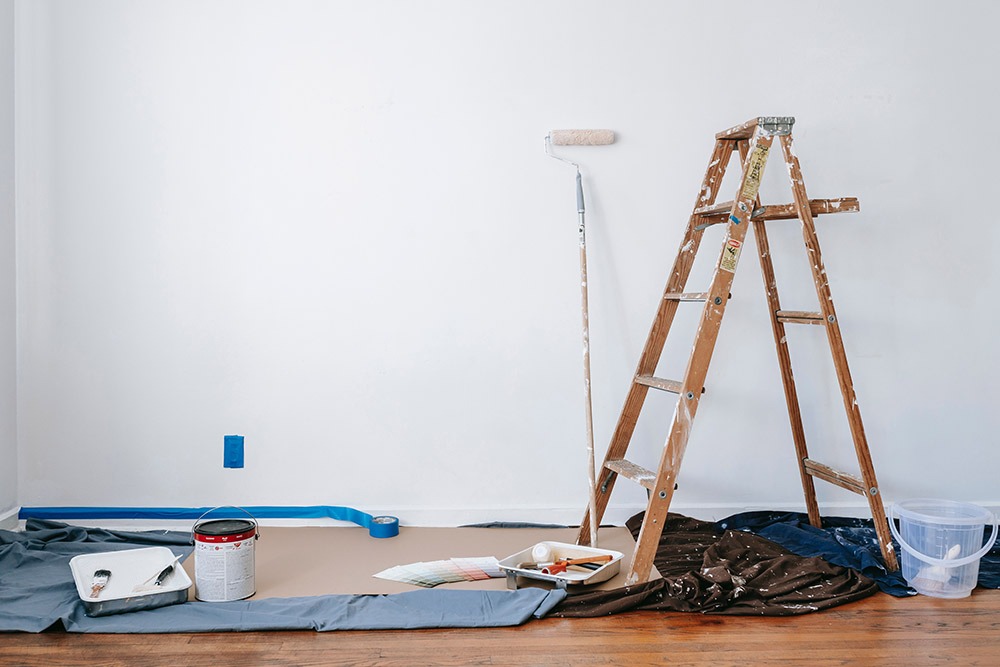Selling your property is a big decision, and there is a lot to consider; timing, costs, market trends, as well as pricing and marketing strategies.
If you are contemplating selling your property this section will provide you with some great information, tips and tricks of the trade and important things to consider throughout the process.
Thinking
If you’ve just started considering a sale this section will provide you with some great information, tips and tricks and this is a great place to start researching and planning your move.
There are many costs to consider when selling a property, we’ve put together a list of a few important ones that you should budget for. Here are a few important ones to consider:
Preparing for Sale
- Repairs and updates
- Carpet Cleaning and a Fresh coat of paint
- Staging and Accessorizing
- Storage
Selling Costs
- Real estate commission
- Mortgage Payout Penalty
- Mortgage Discharge Fees
- Legal Fees
- Disbursements
Moving Costs
- Movers / Truck Rental
- Packing Supplies
Many people decide to do renovations before they sell to maximize their sale price, but the key is to maximize what you are netting out of your sale.
The question as to whether you should put some money into the home and get it ready for sale, or just sell the property as-is is a question with answers unique to each property and its owner. There are so many variables that come into play when selling your home, all the pros and cons of each option need to be considered and this is certainly something we can help you with. The key is to concentrate on the net result of your sale. Don’t put a nickel in unless you will get a dime in return.
Having a home stager consult will help with this process. A good Home Stager will make recommendations that benefit your bottom line. Most staging should involve relatively inexpensive changes and fixes that will help maximize your return on investment and showcase your property in the best possible light to prospective buyers. Your motivation and situation as a seller will also help determine which route is best for you.
Asking the right questions and getting the right answers will help to make certain that the Realtor you hire will be the right one. There are lots of great professionals in the marketplace. Hire someone with a good reputation, a history of professionalism and satisfied clients, someone that you click with and above all someone who truly puts their clients interest above all else.
Here are some questions to help guide you in your interview process:
- How many years have you been in the business?
- How much commission do you charge and what is included in that?
- What do you offer the co-operating broker and how will that impact the sale of my property?
- Where will my house be advertised?
- Are you a full time agent?
- Is it the right time to sell?
- What is the best day of the week to list?
- Do you work solo or as part of a team?
- How do you price a home?
- How do you market the homes that you list?
- Do you do any social media marketing? If so what?
- What online marketing do you do?
- What is your website? (then check it out, is it up to date?)
- Do you provide feedback from showing of other realtors?
- Before I list would you give me an idea of how to make my home more saleable?
- When you’ve listed a home how do you report back to your sellers regarding activity on the property?
- Do you have access to other professionals that I may need during the selling process?
- Are there any “hidden” costs”?
- How do I reach you? Are you accessible?
- Why should I use you over another Realtor?
- How much training do you get each year?
- If I am unhappy can I cancel my listing?
- What are your thoughts on the real estate market today?
- Are there any other questions I should have asked?
- How would you protect the security of my property?

Preparing
Before your home hits the market it’s important that you have taken the time to prepare.
Homes that are staged typically sell faster and for more money than those that aren’t. Why is staging important?
The saying you only get one chance to make a first impression could not be more true than it is for real estate. Buyers decide almost instantly how they feel about the home. When they pull up does the property look inviting and well kept? Are they excited to get inside and see the rest? Or is the impression that they get a less than positive one? If they have already started a to-do list walking up to the front door, rest assured that will continue once inside.
Momentum is a powerful part of human nature, it’s easier to continue feeling positive or continue feeling negative than it is to completely reverse from your initial feelings. Knowing this you can work towards making sure that every impression is the right one.
One of the best ways to ensure that the impressions your home gives to potential buyers are the right ones is to have a professional home stager come in for a consultation. It’s hard to see your own home through the eyes of a buyer, having an unbiased and experienced third party come and make recommendations will make the task of preparing your home for the market much easier.
Homes that are staged typically sell faster and for more money than those that aren’t.
Here is a checklist of a few important jobs to complete prior to selling your home as well as a few tricks of the trade.
A home stager will provide you with a list unique for you and your home, but here is a checklist to help you get started:
Lights
- make sure all your light fixtures are clean and no bulbs are burnt out
Windows
- all glass including mirrors should sparkle
- Trick of the trade *foaming window cleaner, and newspaper instead of paper towels*
Trim
- Clean, bright trim gives the impression of freshness, repainting is the best way to ensure that fresh look
Front Entrance
- Buyers usually need to pause here for a few moments while their agent opens the lockbox. Make sure that there are
- no chips or scratches
- that all the glass is clean
- the porch is swept and tidy
- no concrete stains (CLR works great to clean those)
- make sure that the handles and lock turn easily and silently (WD-40 can help)
De-Clutter
- Accents and accessories are great as long as they are the right ones (your stager will help with this
- Too much stuff makes a house look small and gives the impression that there isn’t enough space
It’s important to remember that once on the market your house is no longer your home, it is a product and the little things matter, don’t assume buyers can look past the cosmetics.

Listing
What to Expect When You Hire Eaton Realty
Our guarantee to each and every one of our clients.
Through honesty, integrity, and roll-up-the-sleeves hard work, we strive to ensure that every one of our clients gets the results they expect and feels like part of our family before, during, and after a sale. Accessibility and consistent communication between us and our clients combined with a straightforward, no gimmick approach to real estate will help make the process of selling your home very smooth and as stress-free as possible.
Pricing your home is one of the important components to ensuring you receive top dollar and complete a successful sale. This graph illustrates the relationship between the number of perspective buyers relative to the percentage above or below market price that the property is listed at.

Here are a few of the most common misconceptions about pricing a home:
We can always drop the price later…
True and many people test the market in this way. What usually happens in this situation however is that the house sits on the market for an extended period of time.
You will have your highest level of activity and most buyer interest, generally speaking, in the first three weeks. If you overprice your house it dissuades what might otherwise be interested buyers from even viewing the home then in order to attract interest and attention back to your listing you must reduce the price. Most of the time your home will end up selling for less than if you had priced at market value to begin with. Don’t forget to consider the extra carrying costs you have incurred during that extended marketing period, this is of particular concern to those sellers who are not living at the property.
My neighbours listed their house at…
Sellers can set any asking price they want, the truth; market value is what a buyer is willing to pay within a reasonable amount of time.
This means that the comparable properties that have recently sold are the best indicator of what the market value is in any given neighbourhood. Adjustments do of course need to be made in relation to individual property characteristics– such as a quieter street, more bathrooms, finished basement, etc.,
When pricing your home we will give you all of the facts and information and advice needed to create a pricing strategy to help you reach your goals.
We Will Not…
Tell you that your home is worth more than it is to get your listing
We Will Not…
Tell you that your home is worth less than it is to satisfy a guarantee to sell
We will…
Give you the same honest advice we would give our family.
Why it’s important to understand the difference.
Traditionally real estate was very much an advertising industry but times have changed and technology has evolved, the use of Web 2.0 and social media has changed the way we do business. Make no mistake advertising is important to the process but it’s only successful if done through the eyes of a marketer.
Some Realtors tell you they will list your property on multiple boards and that this exposure is a key to success, exposure is a component of success not the key to it. A fundamental part of being successful is to understand your audience. Making sure that you target specific demographics in your pieces and making sure they are in front of the right people at the right time is what makes an advertisement successful.
This “Throw everything you got at the wall and see what sticks” approach can actually end up doing more harm than good. There is no point in trying to advertise a 2,500sqft house with 4 bedrooms, 3 bathrooms and a pool in the suburbs, to a single bachelor who travels 6 months of the year for work. Who this advertising should speak to is a family, so you need to make sure that you’re highlighting things that are important to a family. It’s imperative that your Realtor understands how to best achieve this.
Through demographic knowledge and targeted campaigns you can increase the likelihood of your home selling quickly and for top dollar.
We talk a lot about the first impression your home makes on buyers, but what about the first impression your listing makes on Realtors? First impressions aren’t just the job of the home owner, but of their Realtor as well.
Just as when a buyer pulls into your driveway for the first time you want them to be excited, when a Realtor pulls up your listing for the first time, they need to be excited.
Having all of the marketing and listing materials ready for the home when it hits the market is extremely important. When a home goes active on the local real estate board, many Realtors will view the listing within minutes, if there are no pictures yet, or no write up, or incomplete information – many will simply glance over it and never come back and see it again.
The same is true with clients using Realtor.ca. With improved search capabilities buyers are now able to search for only new properties since the last time they visited. There is a good chance that if they see a home without pictures or a description that they will never revisit that home again. Is that a chance you are willing to take with active buyers searching for homes online? In selling your home and trying to achieve the highest price – can you afford to lose these potential buyers or their Realtors?
When the time comes to sell your home – everyone is in a rush and wants it listed as soon as possible. Is your home ready? Does your home need to be staged? Are there rooms that need to be painted? Have you cleaned from top to bottom?

Selling
An offer was received, now what?
First things first, take a deep breath! Usually we will have no Indication on the contents of the offer in advance, so while it is always great to get an offer, it may not be what you are expecting to see. Almost everyone wants to ‘get a deal’ and many people will play the game by offering lower than the asking price and negotiate up.
For years all presentations where done in person by the Buyer’s agent to the Seller and their agent, usually at the Sellers’ kitchen table. Most offers now are emailed to us to present to our clients. This is preferable to most sellers.
In deciding how to proceed with the offer you have 3 options: you can accept it, counter it, or reject it.
There are pro’s and con’s to all three and it will be through our discussions that we will help you make the best choice possible.
Terms and conditions are a fundamental component to an offer and can make or break a deal.
There are quite a few options when it comes to the terms and conditions in an offer. Your Realtor should have a thorough understanding of how clauses and conditions work and be able to explain them in layman’s terms.
A few common conditions include, the arrangement of financing by the Buyer, completion of a home inspection, arrangement of insurance, condition of the Buyer selling their house. Other terms or clauses commonly contained in an agreement include; the Buyer right to revisit the property, the inclusion of other documents (eg. survey), and a warranty on the property and things included in the sale.
Making sure that you have hired a Realtor that fully understands the contract and the contents of its terms and conditions is imperative to making sure you are protected against future liability.

Closing
Closing the transaction is where your solicitor comes to the table. We’ve asked Mike Miller of Mattlow, Miller, Harris, Thrasher LLP, to answer a couple of common questions sellers have for their lawyers:
What can I expect when closing the sale of my property?
When acting on the sale of a property, the Seller’s lawyer communicates with the Buyer’s Lawyer to ensure that all steps are taken to transfer the property from the Sellers to the Byers. The Seller’s lawyer will complete the following tasks:
Receive and review the Agreement of Purchase and Sale.
- Communicate with the Seller to obtain all relevant information about the property.
- At the earliest stage possible, the Sellers should contact their lawyer to review the agreement, discuss information and obtain a quote for the sale fees and costs.
- Communicate with the Buyer’s lawyer.
- Communicate with the Mortgage Company to obtain payout statements for all mortgages/lines of credit registered on the property.
- Preparation of closing documents including the Transfer (deed).
- Ensure that all items registered on title (mortgages, liens, expired agreements) have been removed from title.
- One to four days before closing, the Sellers will meet with their lawyer to sign all paperwork and provide keys for the house. Sellers should meet with their lawyerwhen signing final documents. Some law firms allow a secretary to meet with the clients to sign final paperwork. Sellers should demand that they meet with their lawyer.
- At the final meeting the Sellers will provide 1 key to the house. All remaining keys, mail keys, alarm codes, garage door openers, manuals etc. can be left on the kitchen counter when the Seller leaves for the final time.
- The Sale will be completed when the Buyer’s lawyer has deposited the purchase money into the Seller’s Lawyer’s Trust Account and the Transfer (deed) has been registered buy the Buyer’s lawyer.
- The Sale will be completed some time between 11:00 a.m. and 5:00 p.m. due to a number of different factors.
- The sale proceeds are available when the transaction is completed (between 11:00 a.m. and 5:00 p.m. and can be deposited directly to the Seller’s bank account (exceptions: PC Financial, trust companies, credit unions).
- Sellers should plan to be out of the home before 12:00 p.m. (Noon) on the day of closing.
- The home should be left empty, clean and in a broomswept manner.
A step-by-step guide and timeline of important tasks to be completed as you approach your closing day.
As soon as you have a firm agreement
(all conditions have been removed)
- Ensure your lawyer has received a copy of all of the paperwork pertaining to your purchase (we take care of this on behalf of all of our clients)
- If you haven’t already done so, we highly recommend starting a file or binder to keep all of the documents pertaining to your move in. Having everything in one place will be invaluable once you’ve started packing.
- If you plan on using movers or renting a truck or storage pod this is also something that can be taken care of right away, in fact the sooner the better, since these companies book far in advance and popular moving days book up early.
About a month before moving day:
- Gather packing supplies (packing paper, permanent markers, boxes, packing tape, bubble wrap)
- Begin packing—start with anything you won’t need for a few months that way it can be packed first and unpacked last
- Start notifying others of your address change
- Contact utility companies, and home insurance provider to cancel services and book appointments for final meter readings
- If you are moving in to or out of an apartment building book your elevator time.
About two weeks before moving day:
- Pack any items that you won’t need unpacked until a week or two after you have moved
About a week before moving day:
- Complete all final packing we recommend having a couple of boxes for things you will want access to right away (e.g. cleaning supplies, entertainment for kids, toiletries and a change of clothes)
- Meet with your lawyer, review all final paperwork, and disbursements. Give your lawyer a key for the buyer
Closing Day:
- Leave all extra keys, garage door openers, any manuals or documentation pertaining to the house or anything included in the sale on the kitchen counter
- Make sure the home is left in a clean and broom swept condition all you possession and refuse has been removed and you have vacated the premise by noon.

